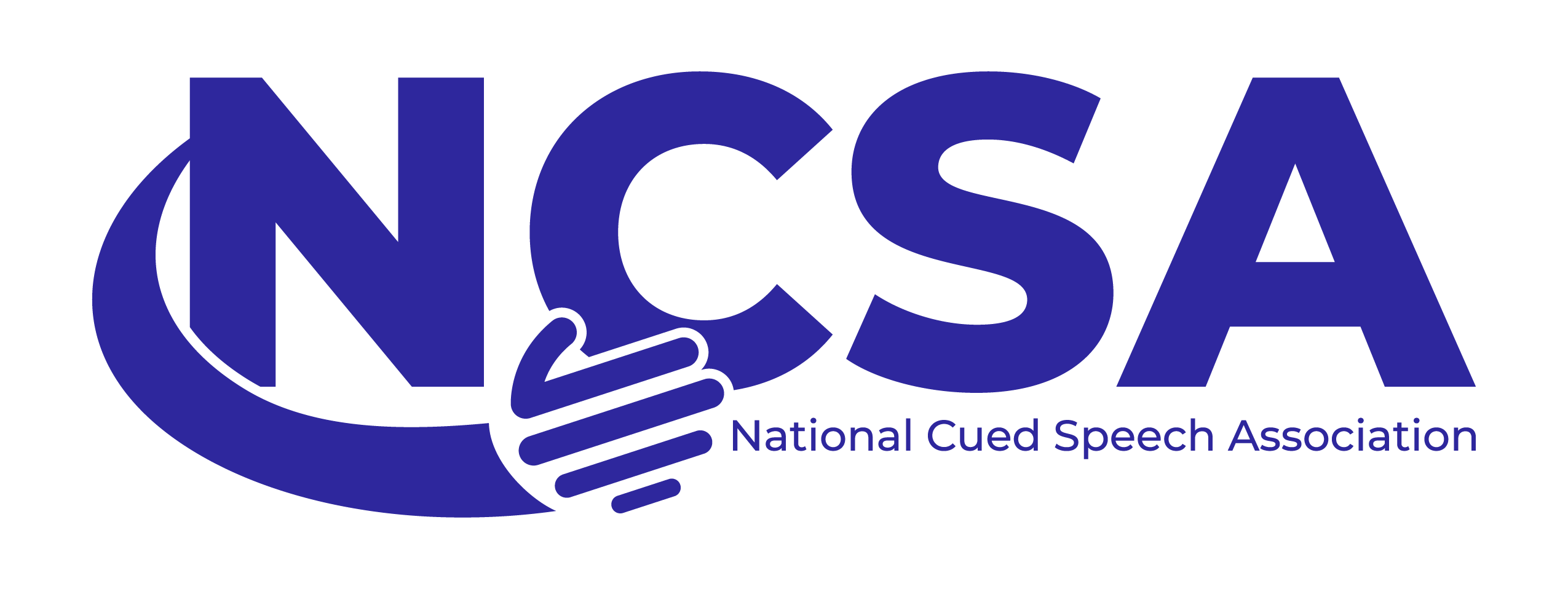NCSA regularly reviews state and national legislation to identify gaps where cued language and the family’s right to cue are not adequately represented. The Legislative Liaison, a voting NCSA Board member, works with Regional Representatives, allied organizational representatives, and government contacts to fill those gaps.
Cued Speech is currently recognized as a “mode of communication” under both the Americans with Disabilities Act (ADA) and the Individuals with Disabilities Education Act (IDEA). Each state has varying levels of additional legislation supporting Cued Speech.
NCSA Position on LEAD-K
The NCSA greatly appreciates the opportunity to be part of the LEAD-K conversation. We very much agree with the fundamental need for children who are deaf or hard of hearing to have access to effective language acquisition.
We recognize that Lead-K is mainly intended to identify assessments for children whose families have chosen American Sign Language as the primary language and mode of communication of their home. We don’t intend to encroach on that mission.
Our primary objective is to ensure that all relevant legislation is inclusive of each person’s and family’s federally-protected right to choose the primary language and mode of communication of their home, especially since a majority of families tend to choose an option other than– or in addition to– American Sign Language. As cuers, our own families are prime examples of this; we chose spoken language, usually English, through Cued Speech.
Our position is that any legislation regarding language acquisition should remain in compliance with IDEA Section 303.13(b)(12), which reads:
b. Types of early intervention services. Subject to paragraph (d) of this section, early intervention services include the following services defined in this paragraph:
(12) Sign language and cued language services include teaching sign language, cued language, and auditory/oral language, providing oral transliteration services (such as amplification), and providing sign and cued language interpretation.
As well as IDEA Section 1414(D)(3)(B)(iv), which reads:
(B) Consideration of special factors – The IEP Team shall
(iv) consider the communication needs of the child and in the case of a child who is deaf or hard of hearing, consider the child’s language and communication needs, opportunities for direct communications with peers and professional personnel in the child’s language and communication mode, academic level, and full range of needs, including opportunities for direct instruction in the child’s language and communication mode;
There are several ways for this specific legislation to stay in compliance with IDEA and win the NCSA’s full support:
- Include a clause that subjugates this state-level legislation to IDEA and Federal law.
- Include a clause that states, “subject to the individuals with disabilities education act, 20 USC 1400 to 1482, (this bill must) include a statement that the parent or legal guardian of a child who is deaf or hard of hearing has the sole discretion to choose the language and mode of communication for the child’s language acquisition and developmental milestones.”
- Use “Modes of Communication” to define how language is conveyed from one person to another. All languages are subject to Modes of Communication.
- Include a definition of “Modes of Communication” in the definitions section, and define it as: “Mode of Communication refers to the means or the way through which language is acquired and used by a child who is deaf or hard of hearing including but limited to the following…”
- Refrain from using the word “tool” to refer to Cued Speech, cued English, or cued languages.
- Include “cued English” as one of the listed uses under the definition of “English” and wherever “spoken English” and “written English” are listed.
We are committed to finding a positive outcome of this effort, and we want to thank everyone involved in LEAD-K for pursuing more equitable and effective language acquisition for children who are deaf and hard of hearing.


